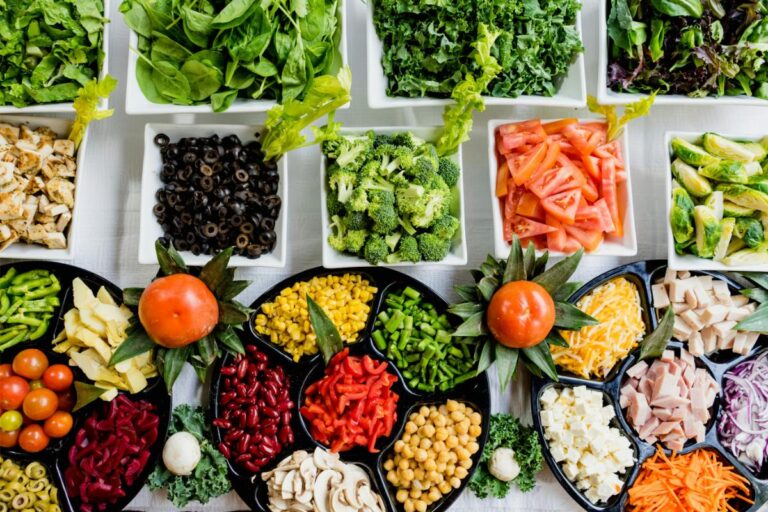Creating a balanced diet plan is essential for maintaining good health and achieving your wellness goals. A balanced diet provides your body with the necessary nutrients to function optimally, boosts your energy levels, and helps prevent chronic diseases. Here are six pro-approved tips to help you create a balanced diet plan that is both effective and sustainable.
1. Incorporate a Variety of Foods
A balanced diet includes a wide range of foods from all food groups. This ensures that you get a diverse array of nutrients. Aim to include:
- Fruits and Vegetables: These should make up a significant portion of your diet. They are rich in vitamins, minerals, and antioxidants. Try to eat a variety of colors to ensure you’re getting a broad spectrum of nutrients.
- Whole Grains: Foods like brown rice, quinoa, oats, and whole wheat bread are excellent sources of fiber, which aids digestion and helps you feel full longer.
- Lean Proteins: Include sources like chicken, fish, beans, lentils, and tofu. Protein is essential for muscle repair and growth.
- Healthy Fats: Avocados, nuts, seeds, and olive oil provide essential fatty acids that support brain health and reduce inflammation.
2. Control Portion Sizes
Portion control is crucial for maintaining a healthy weight and preventing overeating. Use smaller plates and bowls to help control portions. Pay attention to serving sizes on food labels and try to avoid eating directly from large packages, which can lead to mindless eating.
3. Plan Your Meals
Meal planning can help you make healthier choices and avoid last-minute unhealthy options. Set aside time each week to plan your meals and snacks. Create a shopping list based on your meal plan to ensure you have all the ingredients you need. Preparing meals in advance can save time and reduce the temptation to order takeout.
4. Stay Hydrated
Proper hydration is essential for overall health. Water helps regulate body temperature, transport nutrients, and remove waste. Aim to drink at least eight 8-ounce glasses of water a day. You can also include herbal teas and water-rich fruits and vegetables like cucumbers and watermelon to stay hydrated.
5. Limit Processed Foods and Sugars
Processed foods and added sugars can contribute to weight gain and increase the risk of chronic diseases. Try to limit your intake of sugary drinks, snacks, and processed foods. Instead, focus on whole, unprocessed foods that are naturally low in sugar and high in nutrients.
6. Listen to Your Body
Pay attention to your body’s hunger and fullness cues. Eat when you’re hungry and stop when you’re satisfied. Avoid eating out of boredom or stress. Mindful eating can help you develop a healthier relationship with food and prevent overeating.
Conclusion
Creating a balanced diet plan involves incorporating a variety of nutrient-rich foods, controlling portion sizes, planning your meals, staying hydrated, limiting processed foods and sugars, and listening to your body’s hunger and fullness cues. By following these six pro-approved tips, you can develop a sustainable and effective diet plan that supports your overall health and wellness goals.
Remember, the key to a successful diet plan is consistency and balance. Start with small changes and gradually build healthier habits over time. Your journey to better health begins with a balanced diet.
For more tips on living a healthier life, bookmark our blog and follow us on Twitter @wellnessaccel and www.Facebook.com/WellnessAccel.





